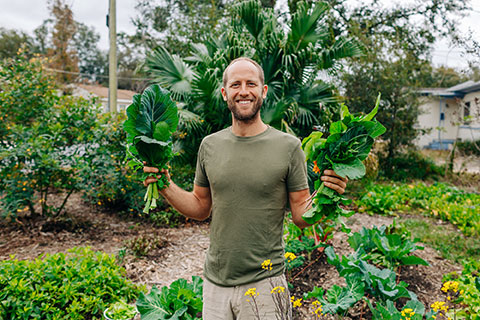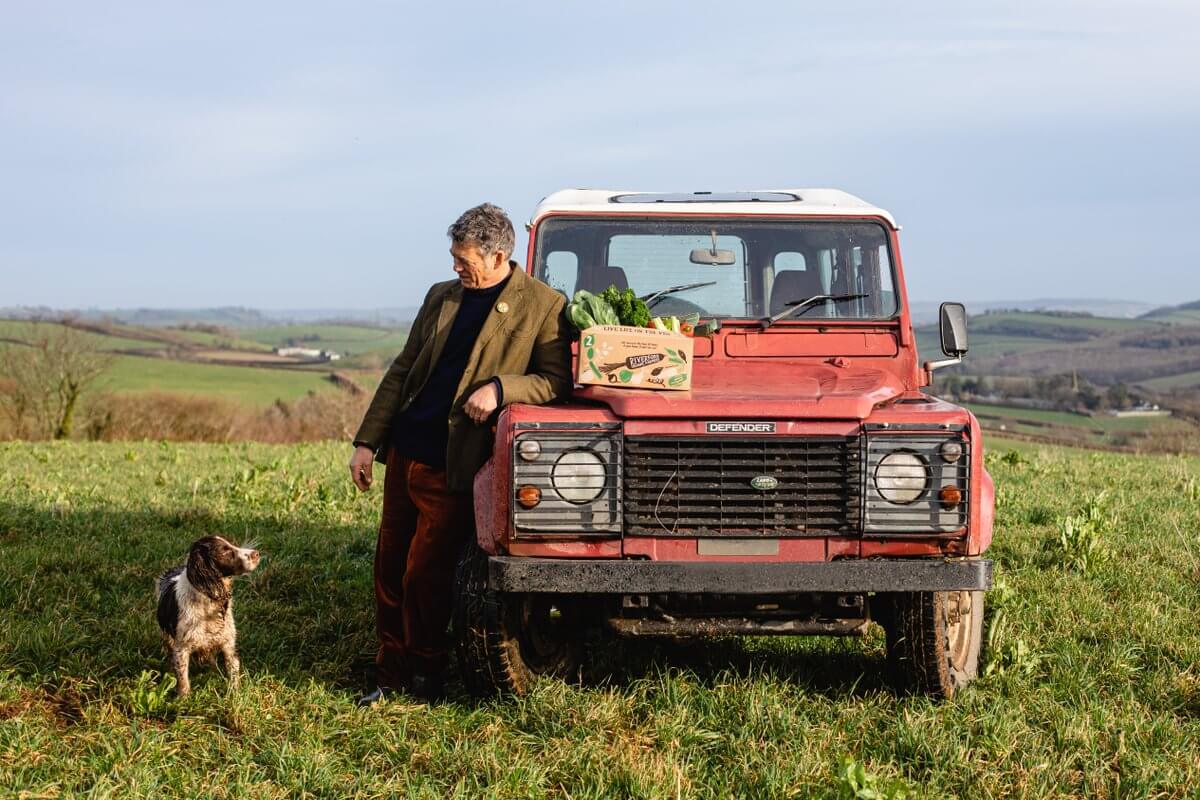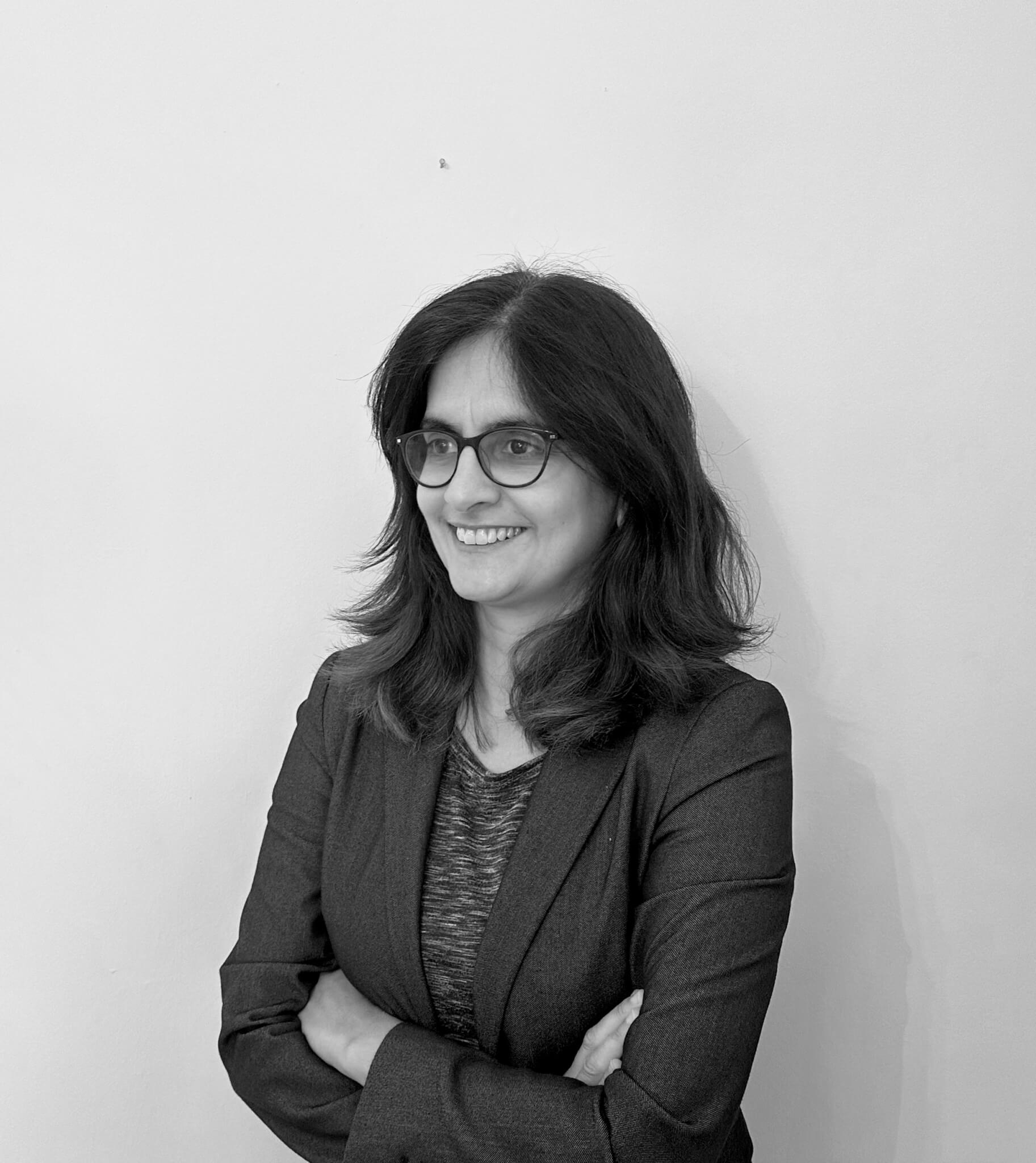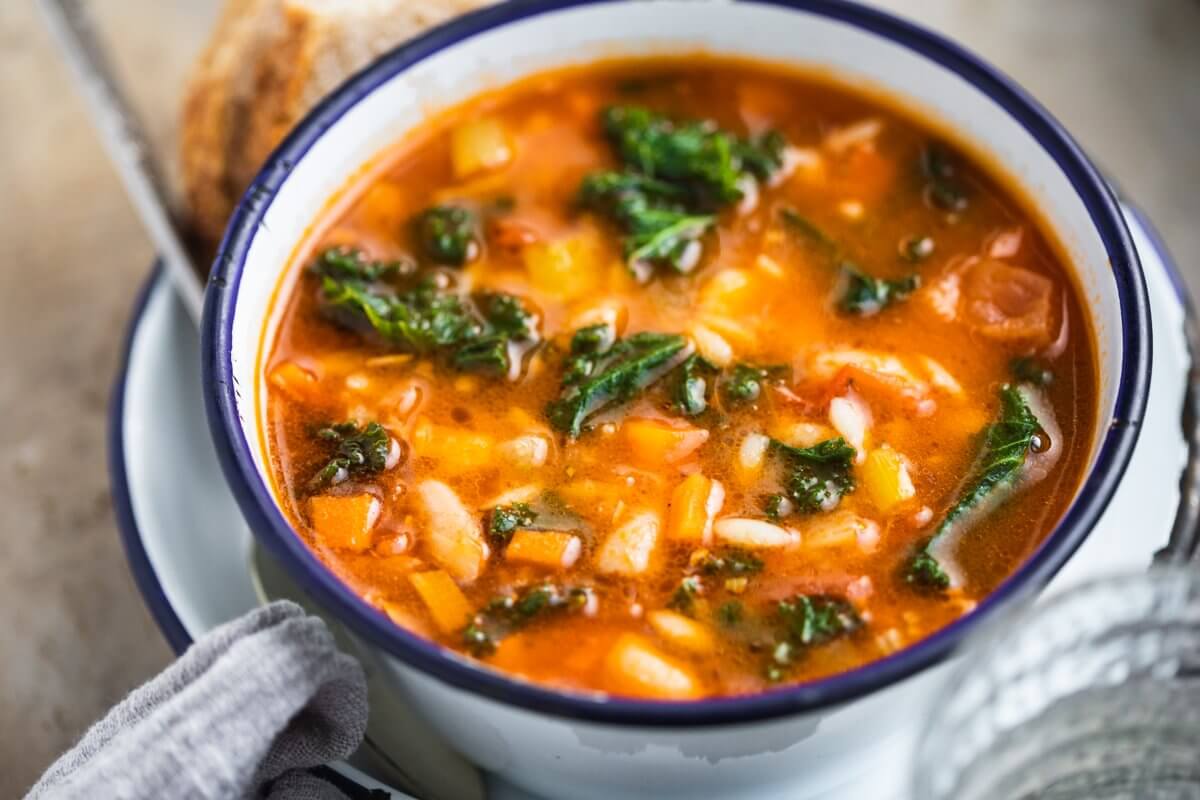For the last year I grew and foraged 100 per cent of my food. No grocery stores, no restaurants, not even a drink at a bar. Nature was my garden, my pantry and my pharmacy.
Most would imagine me living in the countryside on a farm, but I chose to make my base in the city of Orlando, Florida just a few miles from downtown. When I arrived in Florida, I didn’t own any land so, to grow my food I met people in the neighborhood and turned their lawns into gardens and shared the bounty of food with them. I’m a big believer in the philosophy ‘grow food, not lawns’. I needed a place to live so I built a 100 sq ft tiny house with friends to serve as my homestead.
Over the year I grew over 100 different foods in my gardens. Dozens of different greens packed with nutrients, sweet potatoes for my caloric needs, delicious fruits like papayas and bananas, veggies like pumpkins, carrots, beans and beets and herbs and peppers to flavour all of my meals. I raised bees to have my own candy shop right at home.
Around half of my food came from my garden and the other half was from foraging. I foraged over 200 foods from nature. I harvested my own sea salt from the ocean, picked coconuts for a good source of fat, foraged my fruit from hundreds of trees, caught fish from lakes, rivers and the ocean, harvested mushrooms in the woods, and picked nutritious weeds from people’s yards.

I grew my own medicine and vitamins too, including turmeric and ginger, elderberries to make elderberry syrup to prevent colds and flu and reishi mushrooms. Dried moringa, also known as the vitamin tree, was my multivitamin when I travelled.
I cooked up dozens of different healthy meals, fermented veggies to make sauerkraut and made delicious beverages like honey wine and ginger beer. I think it’s safe to say I ate the healthiest diet of my life. I finished the year weighing the same as when I started, and I didn’t get sick once. I trusted nature and it paid off.
This project wasn’t just about growing and foraging all my food, though. It was about empowering others to grow their own food and take back their health. During this year I built gardens for 15 other people through my Gardens for the People programme, planted over 200 community fruit trees, sent out over 5,000 seed packs to help people grow their own organic, healthy food and I taught free gardening classes to the people in my community.
I’ve been exploring food for nearly a decade and I believe the globalised, industrialised food system is broken . This was my personal quest to see whether I could step away from big ag and grow and forage every bite of my own food. I saw that it is indeed possible.
But my message isn’t for you to produce all of your own food. I simply want you to question: where does it come from? How does it get to you? How did it impact the earth, other species and the people that grew it? And if you don’t like the answers you find, I want to empower you to change it.
The good news is that you don’t need to go for 100 per cent. You can start where you are.
You can grow a little bit of your own food. You can learn and harvest the edible plants and weeds in your region. You can source your food locally and purchase from local farmers and gardeners. You can buy whole foods and cook more, rather than packaged processed foods.
This needn’t be a lonely journey. We can do this together in our communities. The solutions are here and they are delicious and nutritious and part of a happier, healthier and more sustainable life.
Follow Rob on Instagram or watch more of his story here.













0 Comments